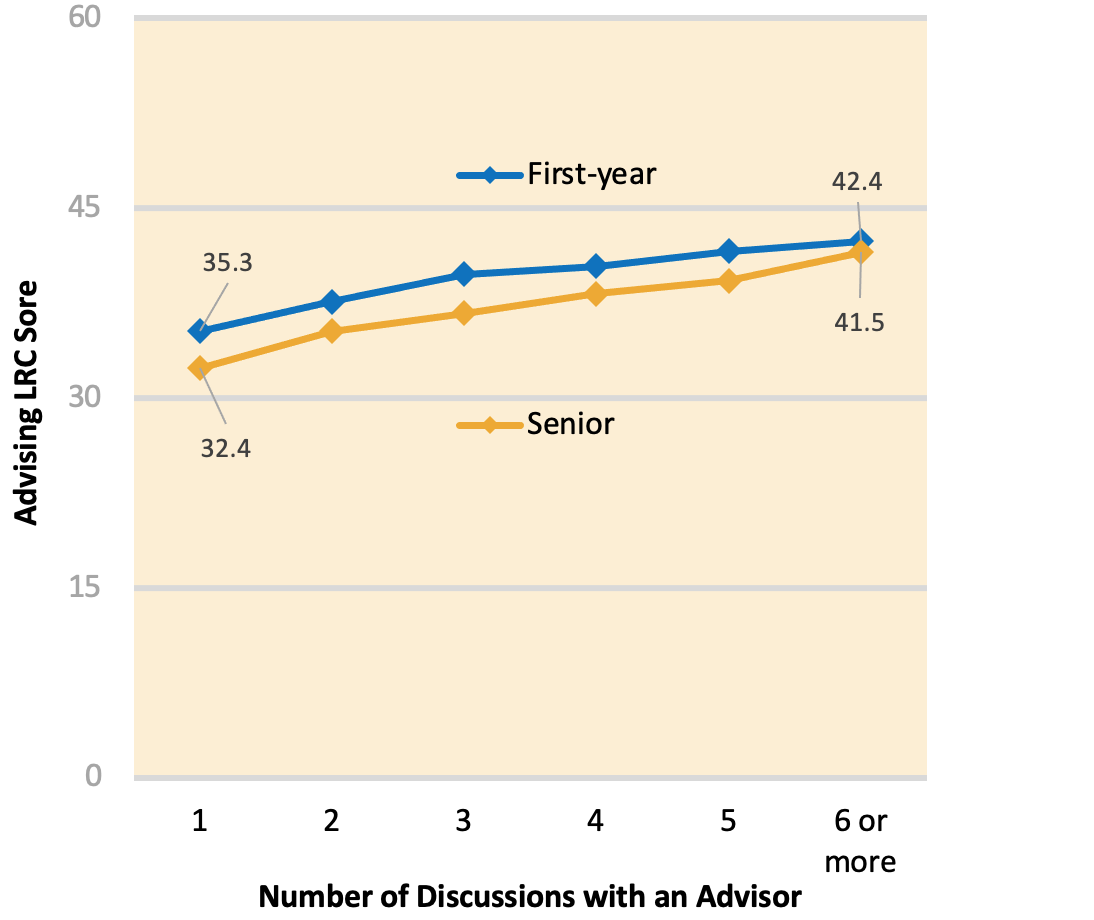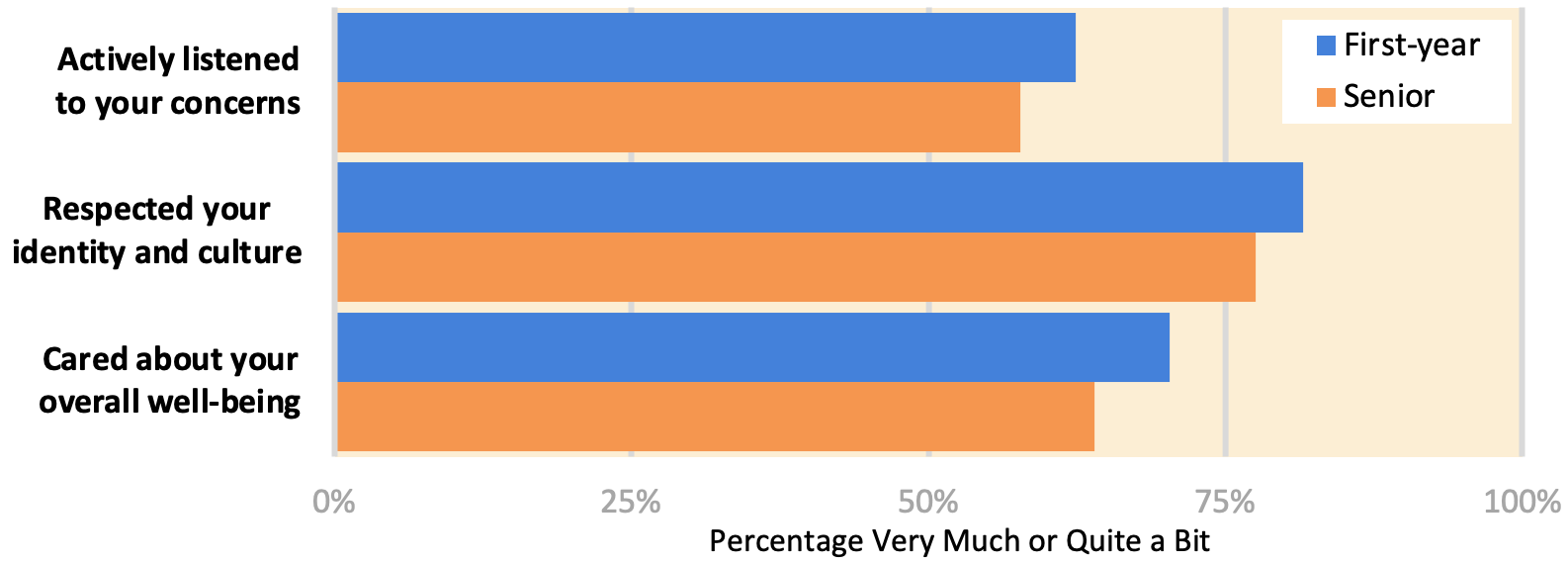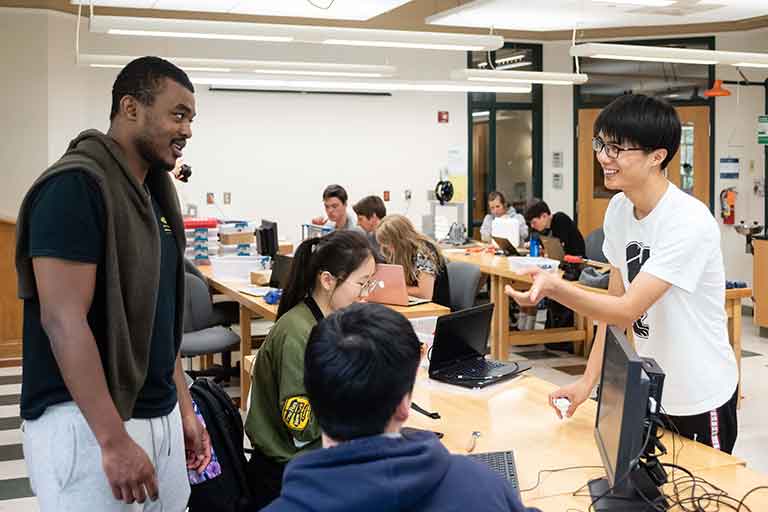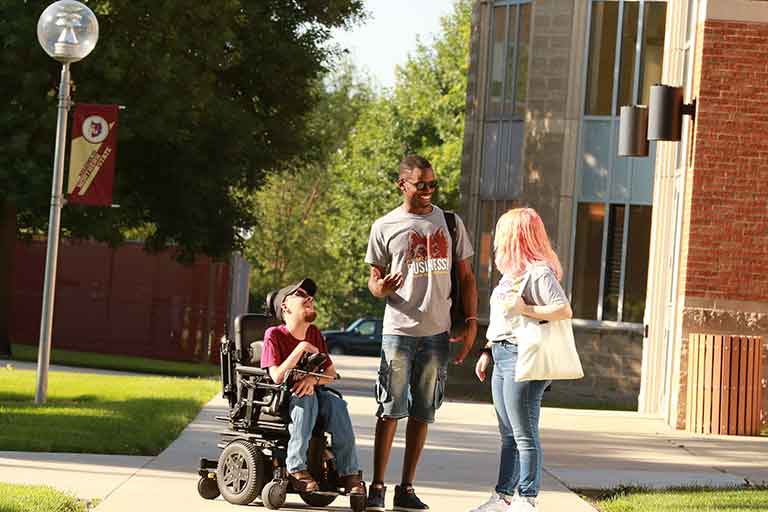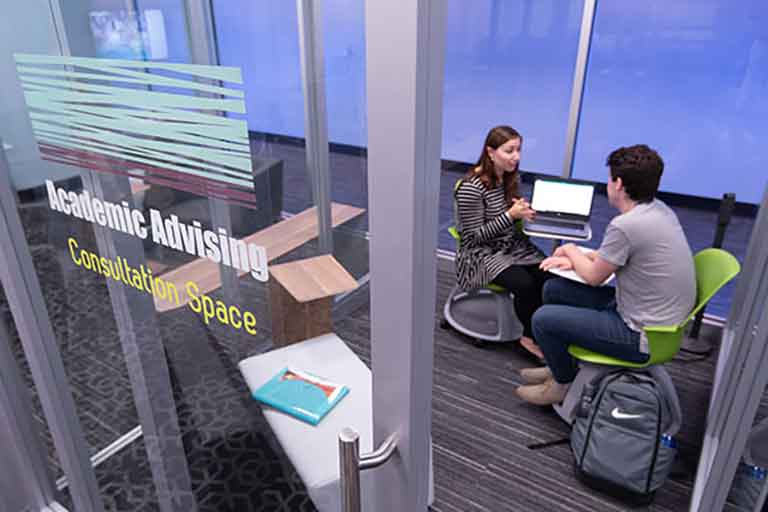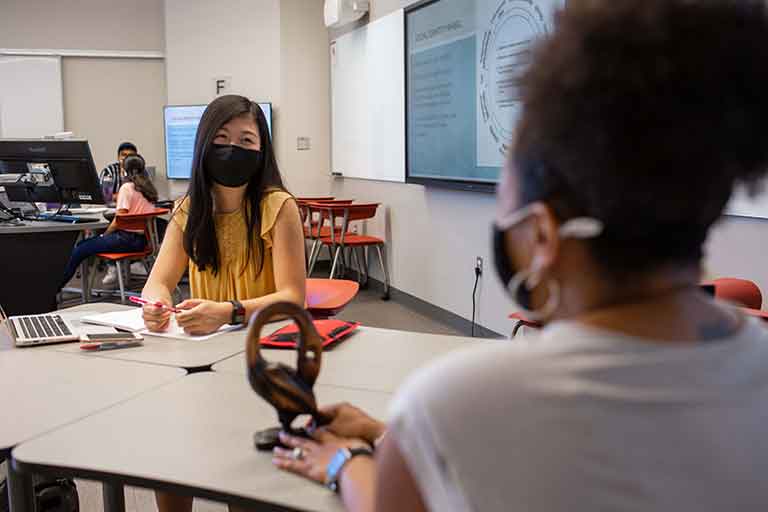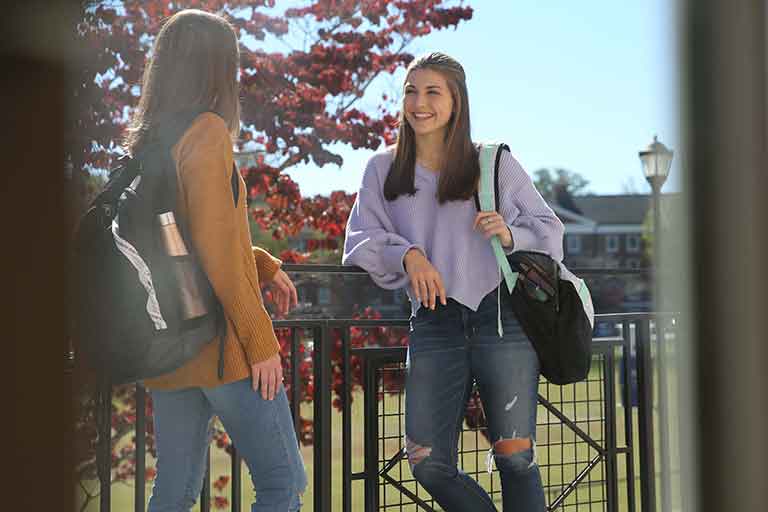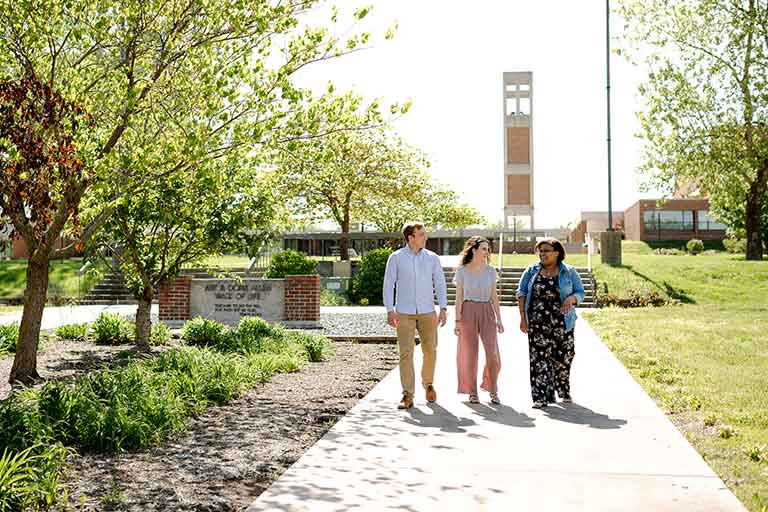With their relationship building and advocacy, academic advisors perform a vital role by helping students feel welcomed and supported as they transition to college and progress toward graduation.
A trusting and respectful rapport with an advisor is essential for new students adjusting to and navigating a complex institution and for seniors looking to maximize opportunities within their major. Among the primary traits possessed by advisors who develop positive relationships with students are active listening, empathy, and cultural sensitivity.


